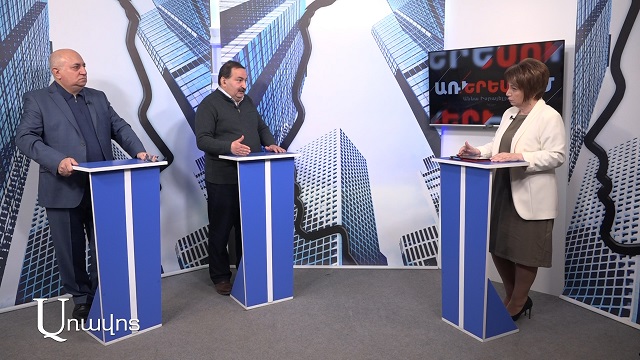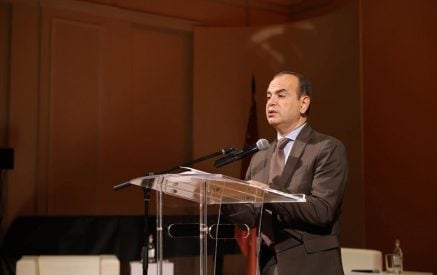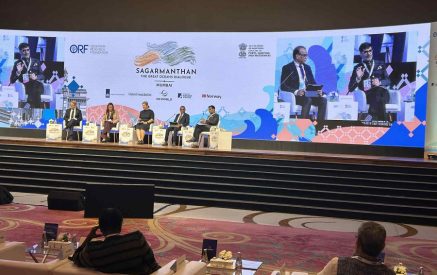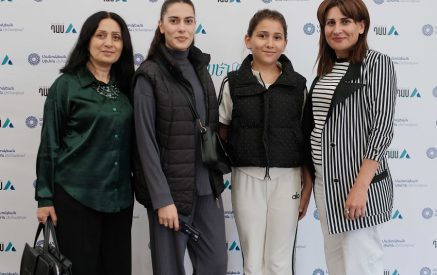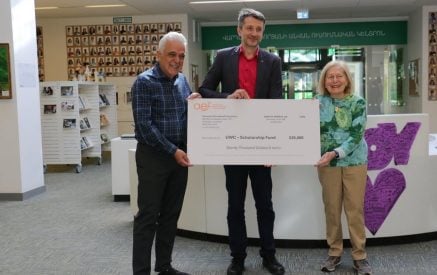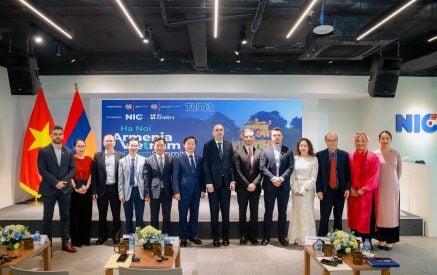The strengthening of higher education institutions can be promoted if the institutions are separate.
The general assembly of the RA Language Institute recently adopted a statement that states explicitly: “Due to the short-sightedness of various individuals, media, institutions, scientists, intellectuals, scientific institutions and ultimately science and the Academy of Sciences have become targets of baseless attacks. The features of scientific activity and the importance of academic science are not considered. Without being aware of the created results, baseless reproaches are voiced, logically unreasoned recommendations regarding the fate of the academy, ignoring scientific, national, and state interests”.
Another quote: “There is no justification for the dissolution of another no less important system under the pretext of improving any system.”
The reason for this concern is the provision of the government’s 2020-2030 strategy, according to which academic institutes are partially planned to be transferred to higher educational institutions. What worried the scientists? What are the prospects for developing theoretical science and the NAS system?
Read also
Vardan Devrikyan, Director of the Manuk Abeghyan Institute of Literature of the National Academy of Sciences, said: “The other day, a general meeting was held at our institute’s scientific staff. 47 out of 49 employees were present, and it was unanimously decided that the NAS RA Institute of Literature, after Manuk Abeghyan, wishes to continue its activities within the NAS RA. Why are such votes necessary? Because we are often told: hey, you’re the director, and you’re afraid of losing your position. And, I will tell you; this position could do better too. But in any case, we did a closed, secret ballot to avoid such arguments. All National Academy of Sciences institutes do this to show that this is the will of the academic institutions”.
Vardan Devrikyan emphasized: “They argue that the goal is to strengthen the universities. I can list the counter-arguments before the light opens, but the main thing is that strengthening universities can be facilitated if the institutions are separate. The academy’s president had developed a whole plan to show that the academy would best implement its plan in an apart status, integrated with the universities. In other words, to strengthen the universities, cooperation with the academy is important. I am confident and optimistic that the issue will not lead to major confrontations. During the last meeting, Minister Zhanna Andreasyan said that the discussions should continue, but there is no final decision. But it will be a fatal mistake to change the status of the academy and make the institutes of the National Academy of Sciences universities. We should be able to convince this without political components.”
Another guest of the program, Viktor Katvalyan, director of the NAS RA Institute of Language after Hrachya Acharyan, noted that there is a question among the public whether we need the National Academy of Sciences or not. “It’s no secret that today science is mainly concentrated in the National Academy of Sciences, which fulfills its mission with honor as much as possible. Suppose the National Academy of Sciences is divided, and the institutes go to universities. In that case, it is not known how and in what capacity, and then the scientific system is divided and dissolved. In other words, we cease to have a unified scientific system. Is it time to divide the academy when the region is in full swing in this geopolitical situation? Having the NAS is one of the indicators of the state, a national value, a pillar, and under these circumstances, what is the point of breaking it up, eliminating it?”
Turning to the questions about what prevents science from being considered in the education system, Victor Katvalyan said. “The problem is that science is not only the servant of education. Science serves all the interests of the country: society and economy. And when we take science and shove it only in the field of education, consider it only from that point of view; we make a big mistake by cutting off science from the rest of the country’s life.” On February 2, during a meeting with the management staff of NAS and the directors of NAS institutes, RA Minister of Education, Science, Culture and Sports Zhanna Andreasyan called the opinion that the government has already decided on the unification of universities and scientific institutes premature. “No decision has been made regarding the methods. A decision has been made that there should be a change,” he said privately. In this regard, Vardan Devrikyan expressed an opinion that every institute should, in its turn, justify that separate status is correct and prove its viability.
Victor Katvalyan, in his turn, said: “During the meeting, madam minister told that their target is higher education and their goal is to raise the level of higher education. And it has been said that the way to do this is to take academic institutes into universities. There was no occasion; we could not ask what would happen to science. If you’re thinking about higher education, who’s going to think about science, and what are the justifications that science will be much better developed in the university system?” Then Mr. Katvalyan proved with specific examples that even today, the NAS and the university system are very closely cooperating and have grown together. “Therefore, it is necessary to think about substantive and qualitative changes and not go along the path of artificial mergers and dissolutions.”
Vardan Devrikyan expressed the same opinion. “There is integration, but the scope of inclusion is reduced in the case of unification. We will become an institution whose scope of mutual ties will narrow. In addition, the scientific index will not be seen after years.” Minister Zhanna Andreasyan also said that the unification will give scientists to science and that new personnel will be obtained from the educational system. Victor Katvalyan disagreed, claiming that it is already happening today. “Specialists who prefer to become scientists are formed in the university system. That way can be made more efficient. In addition, where is the concept, and how many years will they train scientists in higher education institutions? The problem is that a young person should be interested in coming to science and be sure that he will satisfy his professional interests and support a family.
Viktor Katvalyan also mentioned that integrating scientific organizations into higher education institutions would be a big mistake. “The Language Institute, for example, is one of the world’s largest scientific institutions studying the Armenian language, which simultaneously cooperates with all RA universities and international scientific institutions. Every institution is a center, which is wrong to dissolve. They can, for example, form network centers and preserve the NAS. It is a national-state value”.
Referring to the possible prospect of uniting several scientific research institutes of NAS, Vardan Devrikyan emphasized that such a union would also be a mistake because every institute has its function. “But of course, we are not saying everything should remain unchanged. With new indicators and requirements set, the efficiency of international relations will increase. The nature of scientific activity should be changed, not the structure. Concerning this issue, Victor Katvalyan expressed his belief that there is already cooperation between scientific institutions, and nothing prevents it. “The problem is in content change, even thematic. What topics would the state like our study, and what directions would it like to develop? Yes, we do not receive orders. Therefore, the change should go in this direction: topic and development. Ultimately, what does the state want? It should localize and develop the new directions of the world.”
The entire conversation is in the video
Anna ISRAYELIAN




















































